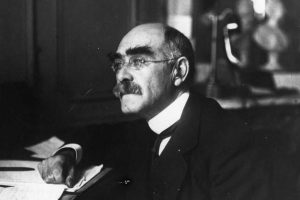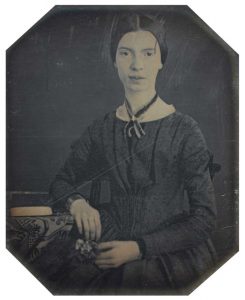Year 7
Here is a brilliant poem about Animal Farm written by Ayesha Kachwala and Khadijah Namazi.
Animal Farm
Mr Jones had locked the hen houses for the night
With a lantern to bring him light
Group by group the animals came
To sacrifice an hour of sleep all the same
They all huddle together on this very night
To hear these words of Major that are very right.
“Commanders, let me tell you a little something
You have provided yet not received
You’re starting to think, yes indeed
There’s just one thing that is in our way
They are humans that won’t get away.”
They think they can get away with this abuse
What if we switch things around and make them loose?
Then we can conquer the WORLD AROUND!
Soon the crops will be ours from this very ground.
Indeed I am old but full of wisdom
Soon we will capture these beasts and put them in prison
Now do me proud my fellow commanders.
Year 8
 Here is a fantastic written response to the poem “My Boy Jack” by Asma Hajee.
Here is a fantastic written response to the poem “My Boy Jack” by Asma Hajee.
How does Kipling (pictured) convey a sense of loss in My Boy Jack?
Kipling conveys a sense of loss through constant questioning and with a tone of desperation throughout the poem. Kipling is desperate for a positive response from speaker two, until it finally hits him and he feels a strong grief.
Kipling conveys a sense of loss through negative news. For example, the poem states, “Not this tide”. This could mean time, meaning there had been no news of his son, Jack, that day. Also, the word “tide” is symbolic. This is because Jack was lost at the English Channel. Tide could mean that he hadn’t come back in that tide. “Not” is a word often used before or during a negative statement. So immediately while reading, the reader will know the response will be a negative. This would make the reader feel pitiful for Kipling, as he is constantly waiting for his son’s arrival but it never came. This links to war because Kipling wrote propaganda, promoting war and also sent his son to war, knowing he was short sighted.
Towards the middle of the poem, Kipling conveys a sense of loss by making a link to Jack’s current situation. For example, the poem states “for what is sunk will hardly swim”. This could mean that it has been quite a while since Jack got lost, meaning that there wouldn’t be any news of him any time soon. However, this could also have a deeper meaning. “For what is sunk” could refer to Jack because he drowned and can’t swim anymore, meaning he’s gone. Also, the word “swim” would instantly make someone think of the ocean. The ocean is quite vast with millions of creatures in it. It could show that Jack is now just one of those millions of creatures with no meaning anymore. This would make the reader feel full of grief, now knowing for sure that Jack will never return. This links to war because countless families lost their loved ones as a result of the war.
Towards the end of the poem, Kipling conveys a sense of loss through past tense. The poem states “He was the son you bore.” The word “was” is a past tense word, showing that Jack is no longer living. The word “son” shows that he was his own flesh and blood, yet he was the reason for Jack’s demise. This would make Kipling’s grief even more powerful, knowing that he could have prevented Jack’s death. This would make the reader feel less guilt, as Kipling was at fault for it. This links to the question because Kipling’s grief is based on his own mistakes.
Year 9
Muhammad Ibrahim has written an impressive narrative.
Jokemen
It was just a casual day in Asda City. The usual Jokemen – the group of villains who commonly came to town to ‘conquer’ – causing havoc upon us. We were unalarmed as there had never been a time where these filthy, foul and grim creatures had ever harmed us – not because they were innocuous nor innocent but because our local heroes had never allowed them to set a finger upon the civil people of Asda.
A scream of agony filled the block followed by another, and another, and another until…
A member of the Jokemen appeared. Gradually, taking each step as though he was enjoying the massacre, he came within the space of half a metre. My heart was pounding. He had an unusual body shape, a cloak the colour of obsidian, scarlet eyes deeper than the aftermath of bloodshed, his teeth sharper than those of a shark.
I waited and waited for someone to help. No one came. Is it possible that they really got rid of our local hero, Asterix? He was our only hope. It soon came clear, he was dead as someone a few streets away had wailed. I tried to run but his evil glare had turned my blood cold. I was frozen. I begged for mercy but he was too malevolent to ever have mercy.
Abruptly, out of nowhere an option button appeared. Was this just a mirage from my head? It reminded me of the button on my PlayStation controller; I imagined pressing on it. Again another option popped up this time reading restart level – it was exactly like the game ‘Super Smash Bros’ from my old Nintendo where I could reset my character. My life flashed before my eyes, colours of all sorts. Unexpectedly, I was woken up to the sounds of, “Get up you have school” and “Breakfast is ready.”
Wait… could this be… no…
I rose to my feet, I assessed my body state. There had seemed nothing wrong with me and as a bonus there was no foul creature standing before my eyes. Could that have all been a dream? It all seemed way too realistic to have been. I got on with my breakfast until my mum wailed to me to “get some fresh air.” It was just like my dream and it appeared to me that I was having the same breakfast as I had had in my dream – pancakes – which was unusual as mum had never made pancakes before; this was her first time. How could I have possibly predicted that she would make pancakes?
I ignored this all, I did as my mum had asked. I got changed and headed out to walk the dog. He was barking wildly as though he detected either fright or danger. Something was odd today. I had reached the Malbourne Street where I saw the same old lady from my dream. “Was this deja vu or could there be another more appropriate explanation to it?” I thought to myself until a woman unanticipatedly yelled for help. On the spur of the moment, it hit me. No wonder.
I dashed over to the origin of the scream, this time without a care in the world because I knew I had the ability to respawn. As I glanced at the nefarious figure from the back searching for his weak spot, another hideous monster arose from the shadows. The sky suddenly becoming dark as night, the wind whistling as the grand trees had their branches rustle. I froze again. The pressure was too much to handle.
Year 10
Here is Hamza Patel’s brilliant work on a non-fiction article.
According to the article by Lawrence Barretto, why is it difficult for women to succeed in Formula 1?
 Immediately, Barretto states that it is difficult for women to succeed as ‘Formula 1 is a man’s world.’ This declarative statement suggests that it is almost impossible for things to change as there is a bias towards women, strengthened by the fact that he presents this statement as a clear fact. It says that men dominate the world of formula one which reflects general society.
Immediately, Barretto states that it is difficult for women to succeed as ‘Formula 1 is a man’s world.’ This declarative statement suggests that it is almost impossible for things to change as there is a bias towards women, strengthened by the fact that he presents this statement as a clear fact. It says that men dominate the world of formula one which reflects general society.
Following through the text, Barretto indicates why F1 is difficult for females to succeed in as “Three of the five women who had a chance in Formula 1 failed to qualify for a race because the cars simply weren’t good enough.” This statement suggests that it’s very hard to even qualify in Formula 1 racing as men have more possession of the sport. It also weakens women’s mind-set as they think they aren’t good enough for such sports which goes back to how men dominate society.
Later in the text, it identifies the sport as more masculine and physical. However it doesn’t make women give up, “so even if women aren’t able to match men physically, that doesn’t mean they can’t be successful.” Women believe that they can still be successful even if men possess the sport. However “they do need to be given a competitive car and a supportive team and until now that has always been the problem.”
Also, Wolff expresses how it is tough and tiring to participate against men as they don’t even qualify, “Being a female in a man’s world is sometimes very tough.” This vigorously implies how women feel about men taking over the sport and how women are strenuously sure that this shows the male dominance.
As we go back to the text, Wolff states, “I don’t race to prove a point about how well women can do against men on the track”. This shows that they do not care about proving a point but it shows they are being pragmatic about this situation. It also shows how women are actually successful for not taking it deep that men are better than women. Men think that, “women lack the strength to cope with the demands of the sport.” The particular reason for this circumstance is that men also believe that women don’t have the variables to take on men in F1.
 Year 11
Year 11
Here is an exceptional poetry response by Saarah Mohmed.
As Imperceptibly as Grief is a poem about transformation. How does Emily Dickinson (pictured) present the idea of transformation in the poem?
Throughout the poem, Emily Dickinson presents time as inevitable. Time passing is gradual as the title ‘As Imperceptibly as Grief’ suggests the slow movement of change, reflecting the idea that overtime grief fades slowly, ‘into the beautiful’ where thoughts are no longer complex and life becomes somewhat normal.
At the start of the poem, there is a key representation of season change as ‘the Summer lapsed away-’. Dickinson creates a link between ‘grief’ and ‘summer’, as the summer slowly transforms into autumn, as humans we don’t notice how summer passes as time is inevitable and the recurring, cyclical feeling of seasons is oblivious to us. Furthermore, Dickinson’s use of the word ‘lapsed’ emphasises how both grief and summer can slip away unnoticed whilst the repetition of dashes throughout her poems reflects the slowness of the transition. As we progress through the poem, Dickinson uses light imagery as we begin to see a contrast and transition of atmosphere. ‘As twilight long begun’ signifies the night, however, twilight also represents the period of gradual decline as it is neither dark nor light. Similarly, the image of a ‘moon’ alludes to the idea of new life and symbolises birth, furthermore not only showing a transition between grief and summer, but life and how nature brings joy.
Furthermore, ‘Or Nature spending with herself Sequestered Afternoon-’, although both summer and grief are associated with the sense of stillness and numbness, it creates the image of Dickinson closing herself off from the outside world as she was a reclusive figure however, she saw this as comforting rather than isolating. This goes against the usual idea of grief in which when a person is feeling immense sorrow, the presence of family and friends is more comforting than being alone. ‘Nature’ is capitalised and personified as a person, this could have been done as an effect to create deep questioning and a complex thought of what it is to be alive. Dickinson shielded herself from the world as she lived most of her life in solitude. Dickinson continues to explore death, however, she doesn’t present death as something to be feared but instead emphasises the beauty contained in the fact that nothing lasts forever, as she lived with the graveyard as the view from her bedroom window – this may have grown her fascination of death. Dickinson personifies and capitalises ‘Morning’ as a guest who wants to leave, this suggests that every living thing has to come to an end, even if you don’t want it to, showing the transformation and gradual change of life.
Towards the end of As Imperceptibly as Grief, Dickinson personifies nature as something beautiful, connoting that after every hardship or time of grief, just as ‘Summer made her light escape Into the Beautiful.’ There is also an element of hope for you as an individual. The personification of summer and how it can ‘escape’, suggests that grief can be overcome eventually. The extended metaphor shows how summer is linked to grief and as summer fades into something ‘beautiful’, like Autumn the end of grief becomes positive. The use of a full stop reflects the finality of summer and how Dickinson has finally accepted this transformation and created a positive image.
Please note images are subject to copyright protection of the relevant companies or individuals.




